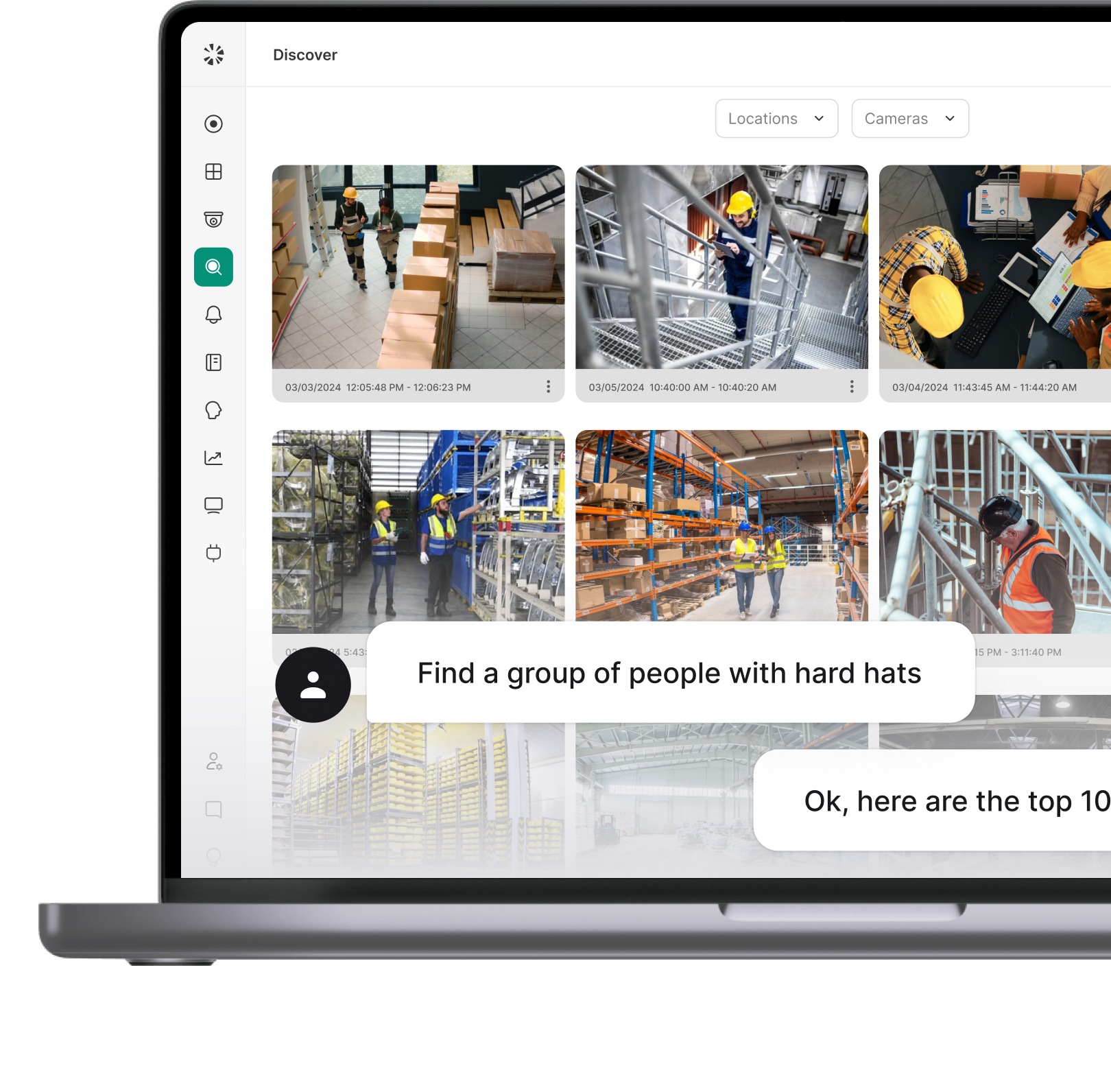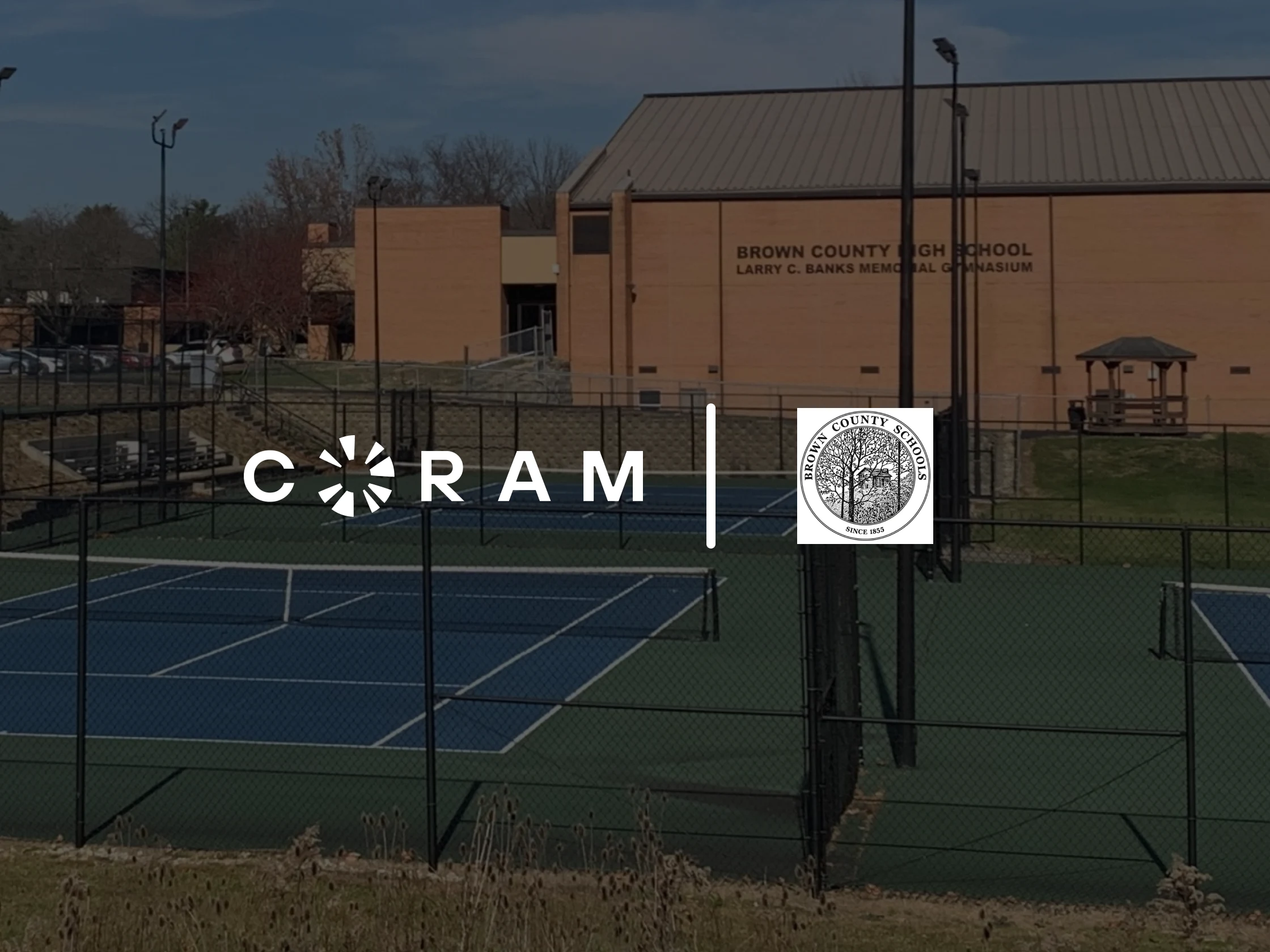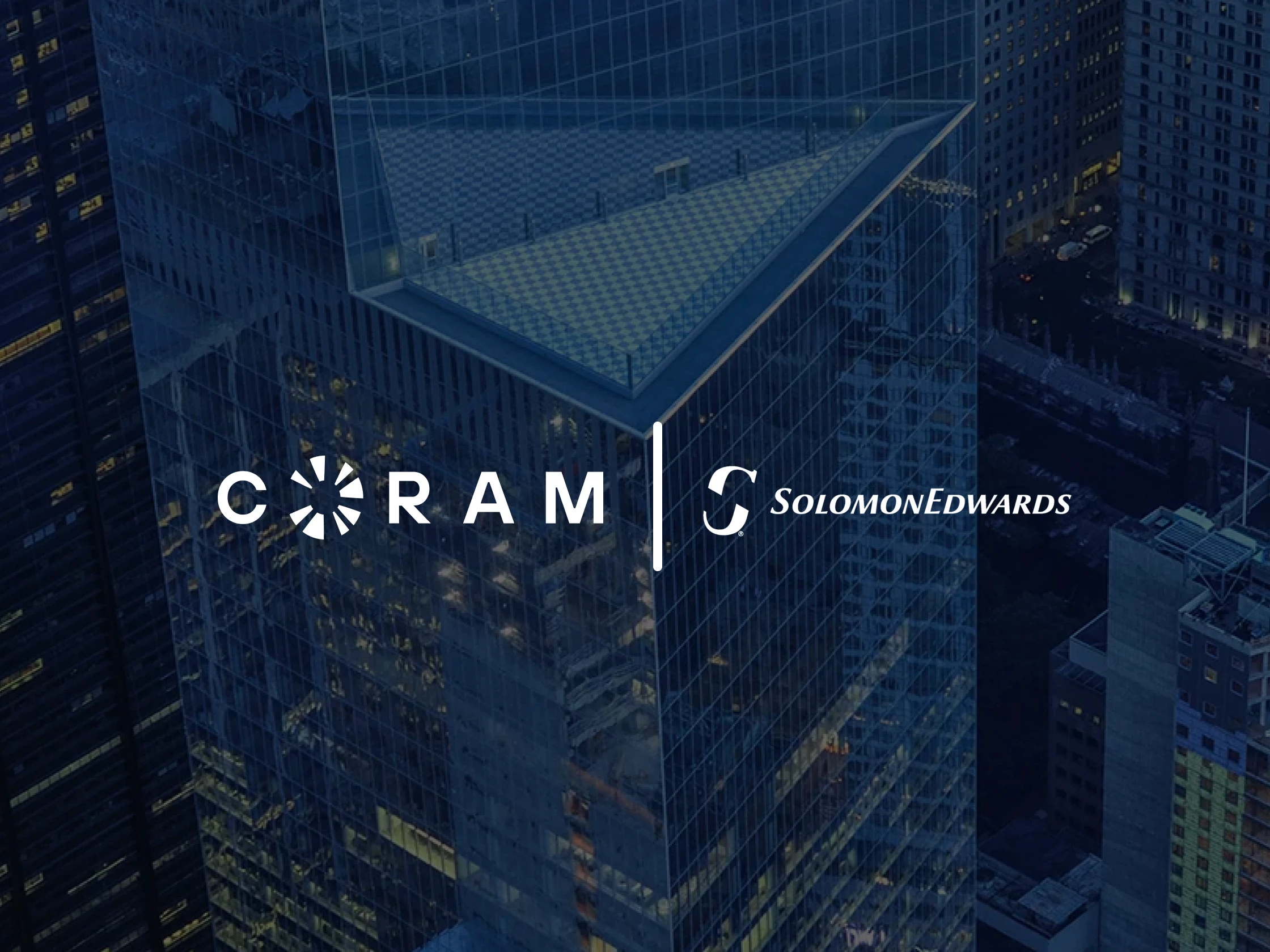The NVR (Network Video Recorder) market is expected to grow from USD 3.45 billion in 2025 to USD 10.54 billion by 2034. A leading reason for this exponential growth is the increasing adoption of IP-based surveillance systems, particularly NVR systems as they deliver exceptionally high-quality video recording.
These systems also provide seamless remote access and scalability, which makes them highly valuable for businesses. And so if you’re looking for one, it’s necessary to understand how to choose the right NVR system because there’s a lot of diversity in the features and specifications of these cameras. Such huge variety can make the decision-making process a bit complex.
To make it simpler for you, this article discusses all the factors to consider while choosing an NVR camera system for your business. It also talks about the benefits of investing in the best NVR camera system and how it can be a worthy upgrade to your existing security infrastructure.
What is an NVR Camera System?
An NVR (Network Video Recorder) security system is a modern video surveillance solution that works with IP cameras to capture footage and process the video. Once processed, it is digitized before being sent to the NVR through an Internet connection. This approach eliminates the need for extra processing devices, which makes the system more compact and user-friendly.
What sets the security systems apart is their scalability and adaptability. They can easily support a single camera for small setups or thousands of cameras across different locations. This makes NVR cameras suitable for both small and large businesses. However, there are certain aspects in which they differ from traditional cameras. These differences are:
- Video processing location: NVR systems process video data on a camera level while DVR systems process raw video signals at the recorder itself.
- Camera types: NVRs use IP cameras that can process and transmit video data over a network. DVRs depend on analog cameras, which generally offer low resolution and fewer features.
- Cabling requirements: NVR setups typically use Ethernet cables while DVR systems need separate coaxial cables for video and extra wiring for power, which makes the setup more complex.
- Flexibility and scalability: NVR systems offer greater flexibility as they support both wired and wireless IP cameras. DVR systems are limited to wired analog cameras, which restricts scalability and camera placement options.
Top Features to Look for in the Best NVR Camera System
To ensure that your NVR camera system works fine for your security requirements, it's necessary to understand the essential features to look for while choosing. This can help you assess the critical functionalities you need in your existing security infrastructure and how they can address different aspects of the security system. Here are the top features to consider:
Resolution Quality
Resolution quality is one of the most critical factors to consider when choosing an NVR system for security. Always go for high-resolution options like 4K or 1080p as they deliver sharp and detailed footage that can capture every important detail. This is especially necessary for businesses looking to enhance security and minimize blind spots.
Investing in higher resolution also future-proofs your system. This ensures that you are set up and remain relevant. However, it may require more storage but the clarity and accuracy you get are absolutely necessary to maintain tough security.
{{cta-component}}
Storage Capacity
The storage capacity of an NVR system determines how much footage it can retain before overwriting. In that aspect, HDDs and SSDs fulfill different storage needs that are effective for the long term as well as faster access to footage.
Systems that come with expandable storage further enhance flexibility as you can upgrade it as your surveillance needs grow. This is particularly beneficial for businesses that need continuous recording or operate in high-traffic areas. When implemented with efficient radio compression technology, modern NVR systems can store high-quality footage for longer periods without compromising clarity.
Remote Access and Mobile App Compatibility
Systems with remote access and mobile app compatibility allow users to monitor their properties from anywhere along with real-time views and playback options. This feature is helpful for business owners in managing multiple locations as it ensures constant surveillance without the need to be physically present on the property.
Apart from monitoring, remote access also simplifies system management as you can adjust camera settings, get alerts for unusual activities, and review recorded footage directly from your smartphone. This convenience improves security while empowering you with control and peace of mind which makes remote access a must-have feature in an NVR system.
Number of Channels Supported
The number of channels an NVR system supports decides how many cameras you can connect. That's why it's necessary to choose a system that meets your current and future needs. Smaller setups like 4-channel systems are ideal for small offices, whereas 8 or 16-channel systems are for larger spaces like warehouses or multistory buildings.
A reliable system gives you the flexibility to adjust as your business's needs change. If you are starting with an 8-channel NVR and adding cameras later, you probably won't outgrow your system too quickly. That's why ensuring the number of channels matches your requirement avoids unnecessary costs while maintaining smooth operations.
{{cta-pop-up-component}}
AI-Powered Features
AI-powered features like more motion detection and facial recognition have made it easier to ensure smarter and more efficient surveillance. Motion detection reduces unnecessary recordings by focusing on specific movements while facial recognition identifies people by their faces. These functionalities help save storage space and make it easier to detect critical events within seconds.
Integration with a Wide Range of Systems and Platforms
Another vital feature to look for in an NVR camera system is its integration capability. Make sure that it can support a wide range of IP cameras, especially those complying with the ONVIF standard. This is necessary to ensure smooth integration with your existing cameras and flexibility for future upgrades without replacing the entire system.
Integration with access control platforms, especially those with publicly available APIs like Brivo, Openpath, and Mercury board-based systems are equally beneficial. You can also look for integration with environmental sensors to monitor temperature, humidity, and air quality. All these features ensure a comprehensive security solution covering all your security needs.
.png)
Benefits of Investing in the Best NVR Camera System
No matter if you choose the best PoE NVR security camera system or any other setup, an NVR camera system offers several advantages that traditional camera systems can't match. These benefits include:
Better Safety and Learning Environment
Implementing a top-tier NVR camera system in educational institutions can significantly improve campus security. High-definition footage provides clear visuals, which makes it easy to quickly respond to potential threats or emergencies.
NVR systems can also be a valuable tool for administration. By reviewing recorded footage, school authorities can analyze incidents like bullying, violence, vandalism, or disputes and use the evidence to make an informed decision. It also helps in policy enforcement to ensure proper accountability across the campus.
Improved Patient Care
Hospitals and clinics face unique challenges in protecting patients, staff, and sensitive areas on the premises. NVR camera systems cater to these challenges by providing interrupted monitoring of critical areas like ICUs, pharmacies, and surgical units. In such cases, motion detection and real-time alerts help maintain strict control to prevent unauthorized access.
These systems also bring transparency and accountability to healthcare institutions. Medical institutions can use them to resolve disputes about treatment timelines and verify the correct handling of medical equipment by using recorded footage as reliable evidence. This improves trust among patients and staff while ensuring compliance with healthcare regulations.
Enhanced Security and Inventory Management
Warehouses are dynamic spaces with high-value assets which makes security a critical challenge. NVR camera systems ensure comprehensive surveillance with multi-channel support to monitor different areas like entry points and storage racks. Plus, with high-resolution recording, minute details are captured accurately. This helps in deterring theft and unauthorized access in all major critical areas.
Loss Prevention and Improved Customer Experience
In the case of retail stores, security, and customer experience are two major factors that need constant surveillance to avoid any discrepancies. NVR camera systems address these needs as they can easily capture high-definition recordings, which can be used as evidence to investigate suspicious activities.
At the same time, these systems contribute to better customer journeys as they can analyze shopper behavior through video footage. This can even help in improving checkout processes and product placement strategies, which makes NVR camera systems a key solution to protect assets and improve customer satisfaction for retail stores.
Why is Coram the Best NVR Camera System?
Coram connects with all IP cameras in all your locations, making it easier to manage all your cameras from a single dashboard. This ensures a fully integrated experience as you can easily access all your footage in one place.
In addition to this, Coram Point comes loaded with the latest A2000 GPUs from Nvidia, which facilitates access to advanced IT applications. With this integration, you can access features like:
- Video encoding for optimum video quality
- Facial recognition
- License plate recognition
- Person of interest tracking
- Text search capabilities
Furthermore, Coram is the only solution in the market that offers gun detection feature within a video surveillance system.
All in all, Coram provides the best NVR security system by simplifying access to features through a unified dashboard. This ensures unparalleled flexibility in terms of remote access, storage capacity, and the number of channels you want to keep.
{{cta-component}}
Conclusion
Investing in an NVR camera system is a smart decision that can enhance your security system infrastructure. That's because it can connect with multiple IP cameras while giving you the flexibility to access video footage remotely. However, it is necessary to consider the following features while choosing an NVR camera system to meet your surveillance needs:
- Resolution quality
- Storage capacity
- Remote access and mobile app compatibility
- Number of channels supported
- AI-powered features
- Integration with smartphone devices
Further, choosing the right NVR camera system offers several advantages for business owners. This includes enhanced loss prevention and customer experience for businesses while improving physical security.
FAQ
To make sure you choose the best NVR system, consider factors like: the number of cameras you need, storage capacity, network compatibility, PoE support, and if you need advanced analytics.
An NVR is considered better than a DVR. That’s because they use advanced technology to record high-quality footage and provide convenient features to access, view, and manage video footage.
There are two major types of NVR: PoE (Power over Ethernet) and wireless (non-PoE).
Yes, it can work without an internet connection. You can record footage and view it locally on the device directly connected to the NVR system. However, you won't be able to access the footage remotely if there's no internet connection.





%20(786%20x%20506%20px)%20(7).png)








.webp)

